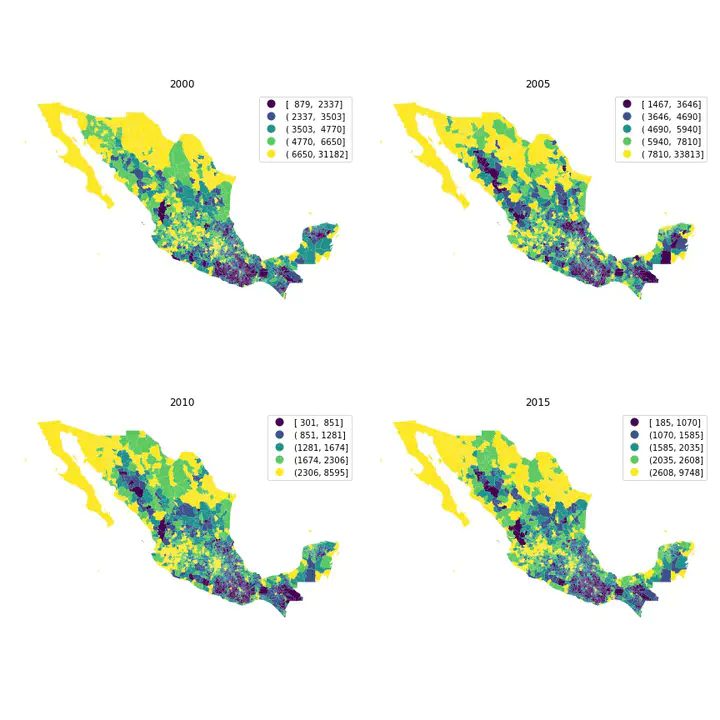Comparative Regional Inequality Dynamics: Multiscalar and Multinational Perspectives

This research project will comparatively analyze the dynamics of regional inequality in the United States and China using recent developments in geographic information science. Because the investigators will focus on core-periphery structure, place mobility, and scalar effects, this project will significantly improve basic understanding of spatial inequality. This project will advance knowledge about the dynamics of regional income inequality in a number of different ways. It will provide a systematic study of the multi-scalar nature of regional inequality, thereby providing a clearer picture of the dynamics of regional inequality and its relationship to scale. It will provide new insights about place mobility and about the core-periphery structure in regional development, and it will provide new perspectives regarding the role of geography in regional inequality. Project findings should prove valuable to domestic and international organizations, such as non-profit organizations and the U.S. and Chinese governments, giving them improved understanding of inequality and facilitating the development of more informed policies that address development issues in equitable ways.
Questions about spatial inequality lie at the heart of the discipline of geography and are of major concern to governments. While the geography of inequality has received new attention from academics and policy makers because of the recent global financial crisis, existing knowledge about spatial inequality dynamics is fragmented. Furthermore, few comparative analyses have sought to synthesize the current state of knowledge. The investigators will analyze regional inequality across states/provinces, metropolitan areas, and counties using conventional and spatial approaches. They will decompose overall inequality into interregional and intraregional components. They will examine regional income mobility using spatial Markov chain, spatiotemporal models, and decomposition techniques, which will focus on changing core-peripheral structure and mobility of places up and down the regional income distribution.
See more on the funder’s website